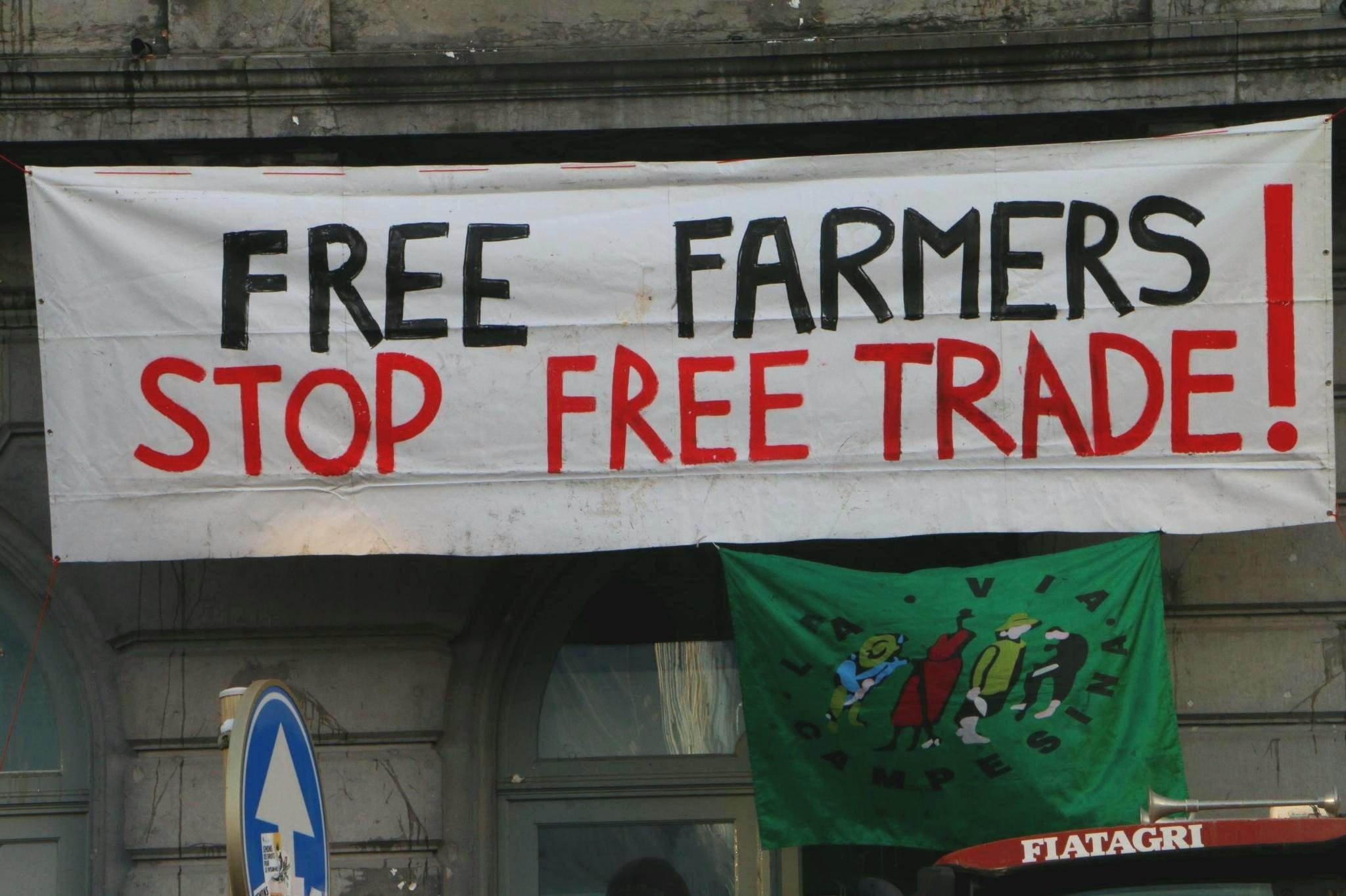As protests against the EU-Mercosur trade agreements grow louder, we are republishing the La Via Campesina statement based on a proposal from the Latin American Coordination of Rural Organizations (CLOC-Vía Campesina) and the European Coordination Via Campesina (ECVC).
We reject the EU-Mercosur Free Trade Agreement because it violates the rights of peasants and threatens nature.
(05 December 2023) From the VIII International Conference of La Via Campesina, held in Bogota, with over 500 delegates from all continents, we express our rejection of the Free Trade Agreement between Mercosur and the European Union. We believe that this agreement solely benefits large transnational corporations responsible for hunger and the climate crisis. Its consequences will be destructive for people, particularly for peasants in the affected regions.
The treaty commodifies food without considering human rights, the right to food, and the rights of peasants as adopted by the United Nations in the Declaration on the Rights of Peasants and Other People Working in Rural Areas. The agreement fails to recognize the diverse economic and social realities within each country’s food systems and proposes rules that only favor concentrated and transnationalized sectors of agriculture.
This trade agreement will lead to the destruction of peasant food systems that currently supply food to people in each region. It is tailor-made for financial capital and transnational corporations, the main culprits behind poverty, the climate crisis, and the food crisis. For many years, farmers, peasants, landless people, Afro-descendant communities, and agricultural workers have suffered the consequences of market regulation through the international free trade regime.
The interests of agri-food companies consistently override those of small food producers and agricultural workers. The price of the food we produce has artificially disconnected from the local production costs. We are forced to compete with each other, despite significant variations in production conditions from one country to another.
Land, water, and seed commodification lead to the impoverishment of rural populations. Corporations progressively taking control of food systems only appear “competitive” because they are heavily subsidized with public money and are not required to bear the health, environmental, and social costs of their industrial production model.
As stated in the UN Declaration on the Rights of Peasants and Other People Working in Rural Areas, to ensure peasant rights and to end hunger, it is necessary to develop public policies for Food Sovereignty. This requires tools that allow states to intervene in markets and regulate them to achieve fair balances against the concentration of food systems in large corporations that exercise dominant power by speculating on food prices.
Far from a free market, states must also intervene to ensure sustainable production methods that reverse the process of nature destruction and water pollution. This agreement will encourage unsustainable production models in rural areas, causing even more small and medium-scale food producers to disappear and migrate to urban areas for precarious jobs.
In the EU, the agricultural population already represents less than 5% of total employment, while in Mercosur countries, the rural population is among the most marginalized. Does this truly align with our governments’ long-term vision for rural areas?
This agreement does not consider the interests of workers, peasants, or agricultural cooperatives. On the contrary, it poses a huge risk to them. Additionally, it is not a sustainable agreement; free trade allows large companies to advance their capital accumulation voracity at the expense of nature and the expulsion of peasants from their lands.
La Via Campesina demands a new international framework for global trade based on food sovereignty. We support international cooperation and solidarity among peoples. Bilateral or birregional cooperation agreements must core on human rights, especially the rights of food producers recognized in the UNDROP. They should enable authentic agricultural development prioritizing local food production and agroecology. They must halt the corporate power expansion in food and agriculture, prioritizing small and medium-scale food producers.
As peasants, small farmers, and agricultural workers from both continents, we call on all social movements and civil society organizations to oppose the EU-MERCOSUR agreement and demand that our governments halt this agreement.
Summary of the statement below:
On Thursday, February 1, 2024, European peasant farmers staged a blockade in Brussels against the EU-Mercosur agreement, demanding fair prices for peasant farmers and meaningful state support towards agroecological transition. Here is the video report. Press release here.

